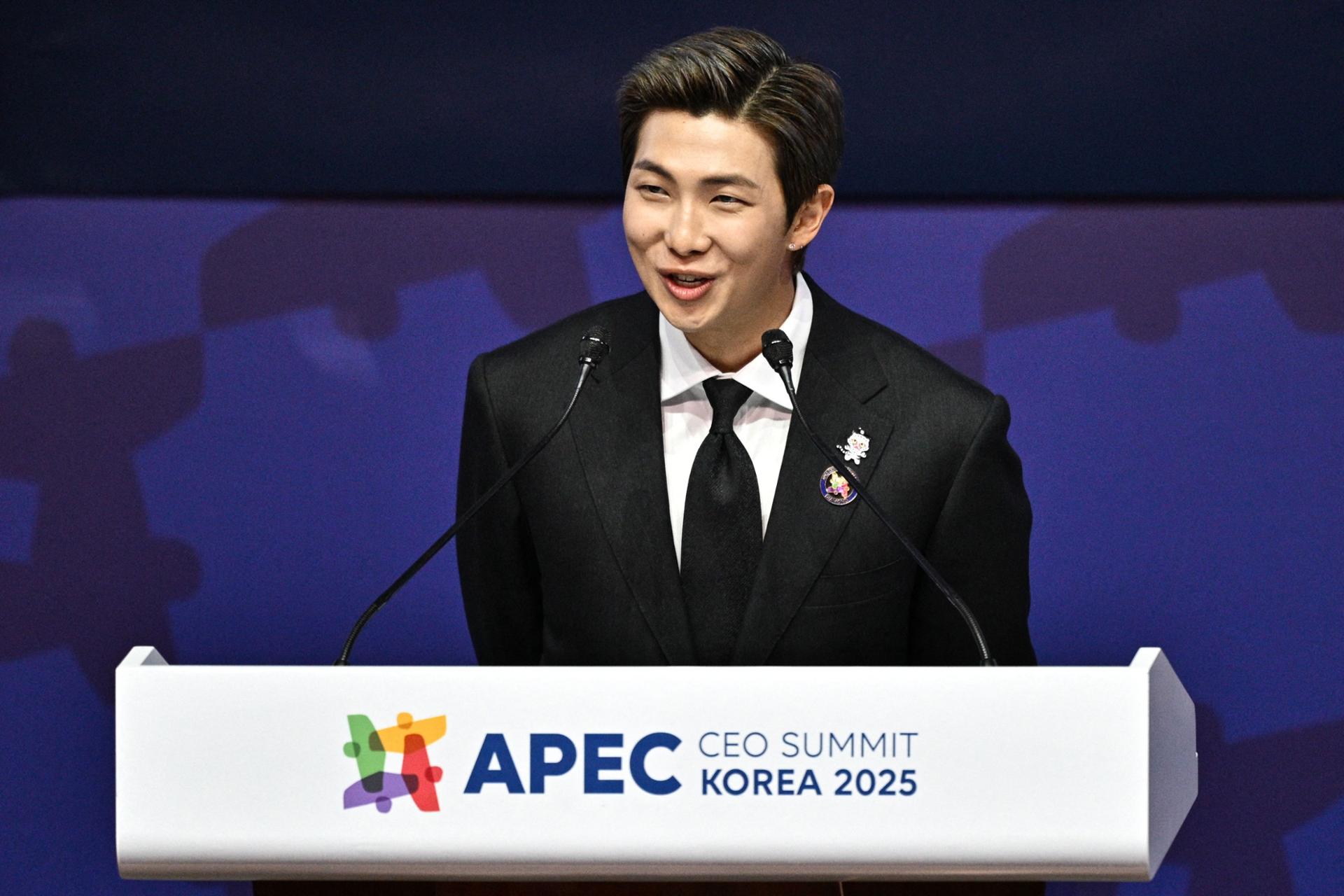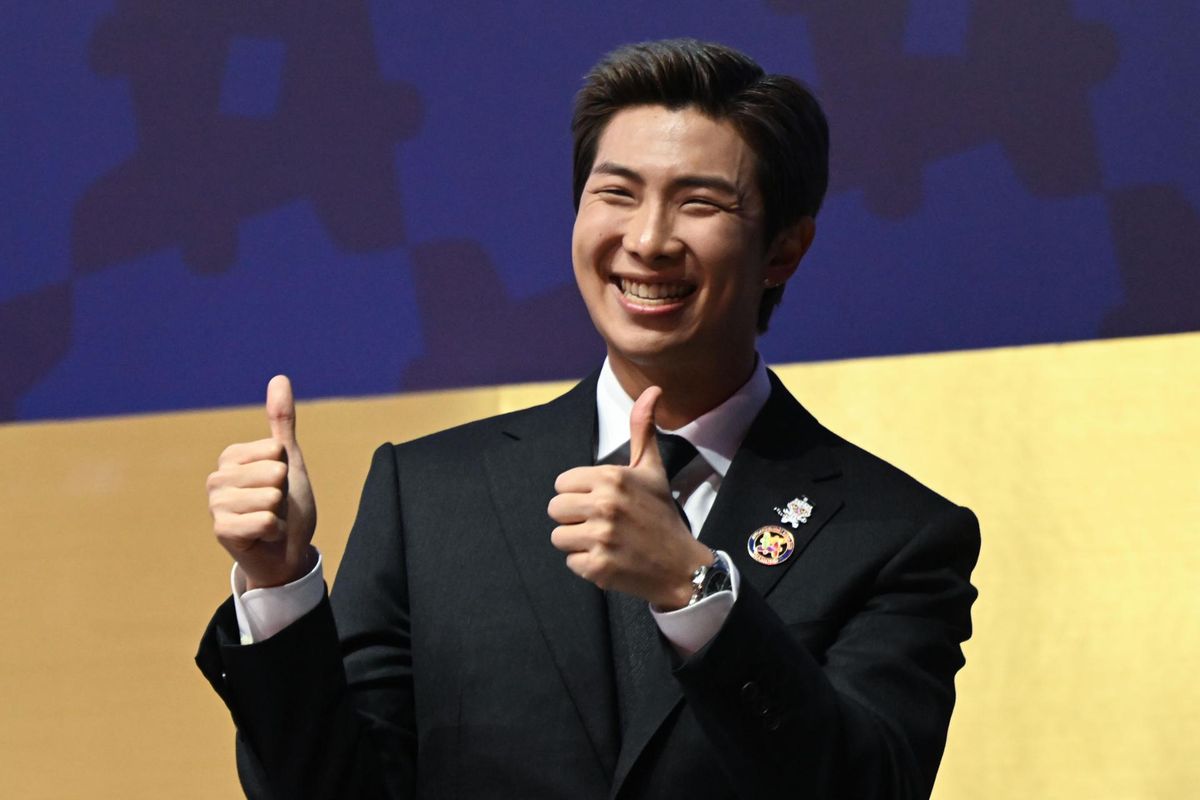
BTS’ RM urges world leaders to support creativity at APEC CEO Summit
At the APEC CEO Summit, BTS leader RM became the first K-pop artist to address the APEC event as a keynote speaker, delivering a speech in English that wove together his personal journey, the global rise of K-pop and a direct appeal to policymakers: invest in the arts and the people who make them.
Speaking before government and business leaders from across the Asia-Pacific, RM, whose real name is Kim Nam-joon, began by reflecting on BTS’ early struggles to gain recognition outside Korea.
“BTS first started to go outside Korea about 10 years ago,” he said. “And back then, we didn’t dream of what we see today.”
He recounted the steep cultural barriers the group faced when trying to bring their Korean-language music into the English-speaking world.
“Trying to get on mainstream media through our music was like doing an experiment and a huge challenge. It was a test to see if music in Korean can work on the global stage,” he said. “When we said we are artists from Korea, they didn’t ask us about our music. They asked, ‘Are you from North Korea or South Korea?’ ‘Where on earth is Korea?'”
BTS member RM, right, and HYBE chairperson Bang Si-hyuk visit the K-pop powerhouse’s promotional booth during the opening ceremony of the APEC CEO Summit at Gyeongju Arts Center, Wednesday. Courtesy of HYBE
But it was through this struggle, RM said, that BTS and their fans, known as ARMY, found an unexpected source of power: solidarity. “ARMY was the force that broke down those barriers. They used our music as the medium to carry out conversations that cross borders and languages … even at this very moment, they’re crossing borders and breaking down barriers through the pure power of cultural solidarity.”
He cited this solidarity as the heart of what makes K-pop more than a genre, likening K-pop to bibimbap, a beloved Korean dish. “So you take ‘bap,’ which is rice, then you put all kinds of vegetables, meat, flavorings on top and mix it all up. And that’s the bibimbap. K-pop is much the same.”
He described the genre as a fusion of Korean aesthetics and emotions with global elements like hip-hop and EDM, each ingredient retaining its flavor while creating something “new, fresh and delightful.”
“[K-pop] is a 360-degree total package of music, dance performance, visual style, storytelling, music video and even social media.”
Beyond catchy beats and flashy visuals, K-pop’s power lies in its inclusivity, he noted. “K-pop’s success didn’t happen because one single culture was better. K-pop success came from respecting diversity and embracing world cultures, but still holding on to Korea’s unique identity.”

BTS leader RM gives a thumbs-up after delivering a keynote speech during APEC CEO Summit at Gyeongju Arts Center in Gyeongju, North Gyeongsang Province, Wednesday. Yonhap
RM used this foundation to pivot toward a more universal message about the role of culture in diplomacy and development.
“Culture is like a river,” he said. “It flows freely, different strains, sometimes coming together in harmony, just like K-pop … The Asia-Pacific region has incredible dynamic cultural diversity. K-pop’s shining success is proof that cultural diversity and creativity are the greatest human potential — a force with no borders, no limit to growth.”
He challenged APEC leaders to recognize this creative potential not as a fringe sector but as a core engine of innovation and unity.
“There are creators all around the world. Please help them. Give them the financial support so that their own creativity can bloom. Give them the opportunities so that their talents can really shine.”
The artist also made a case for why investing in culture is not simply feel-good policy but a strategic imperative.
“Culture and art are a powerful force that moves hearts. They are the fastest messengers that carry diversity and resonance … Your policies and support will be the canvas and playground for all the creators.”
In closing, RM made a promise of his own.
“I will play my heart out in the playground you will build for us. I promise that I’ll do my part by sending a message of courage and hope and lots of emotions through music, a message of embracing our differences to make something better together.”
First Appeared on
Source link






